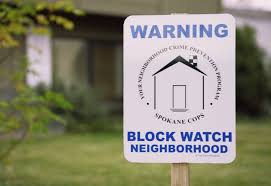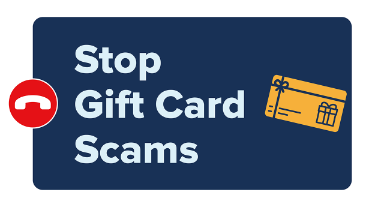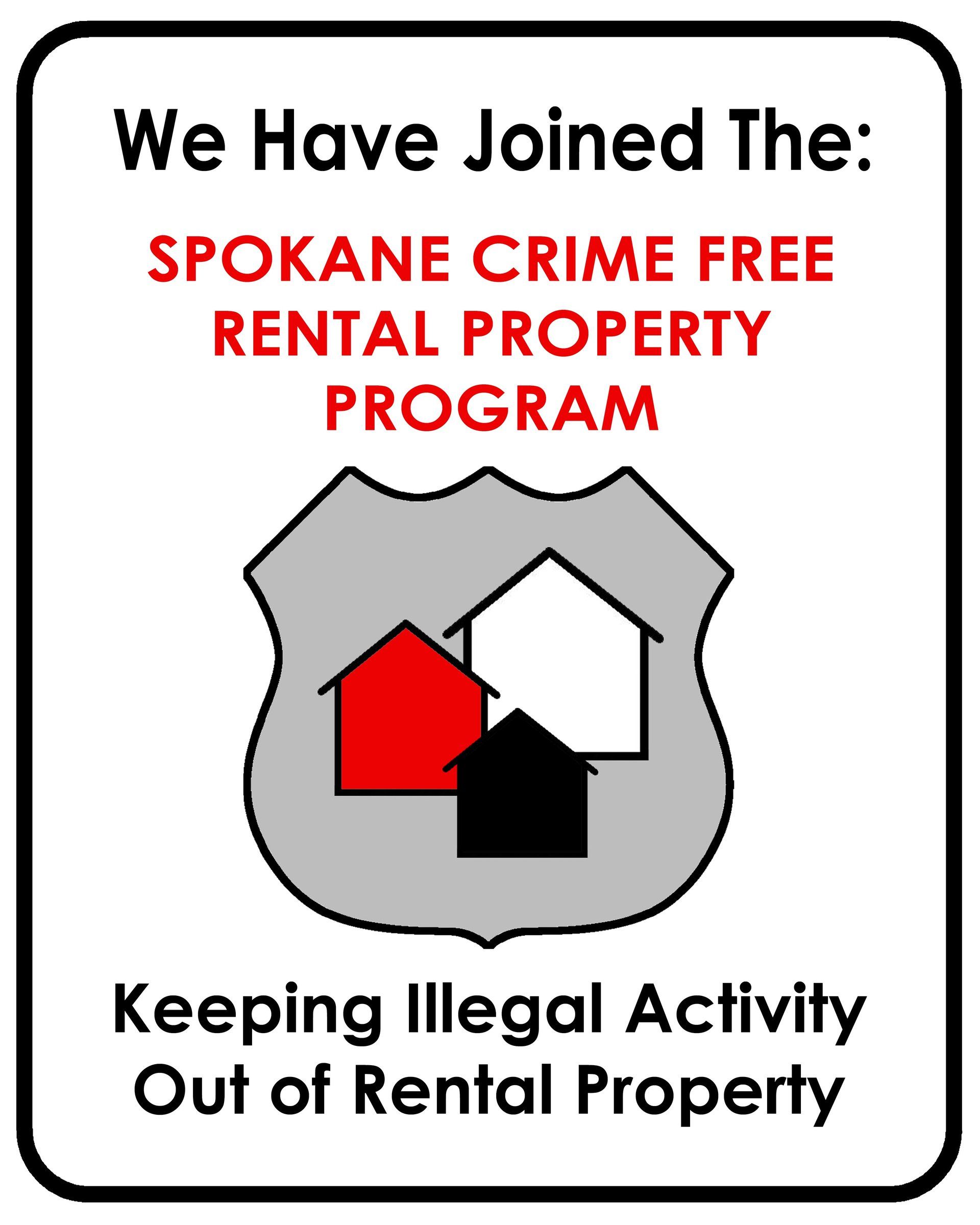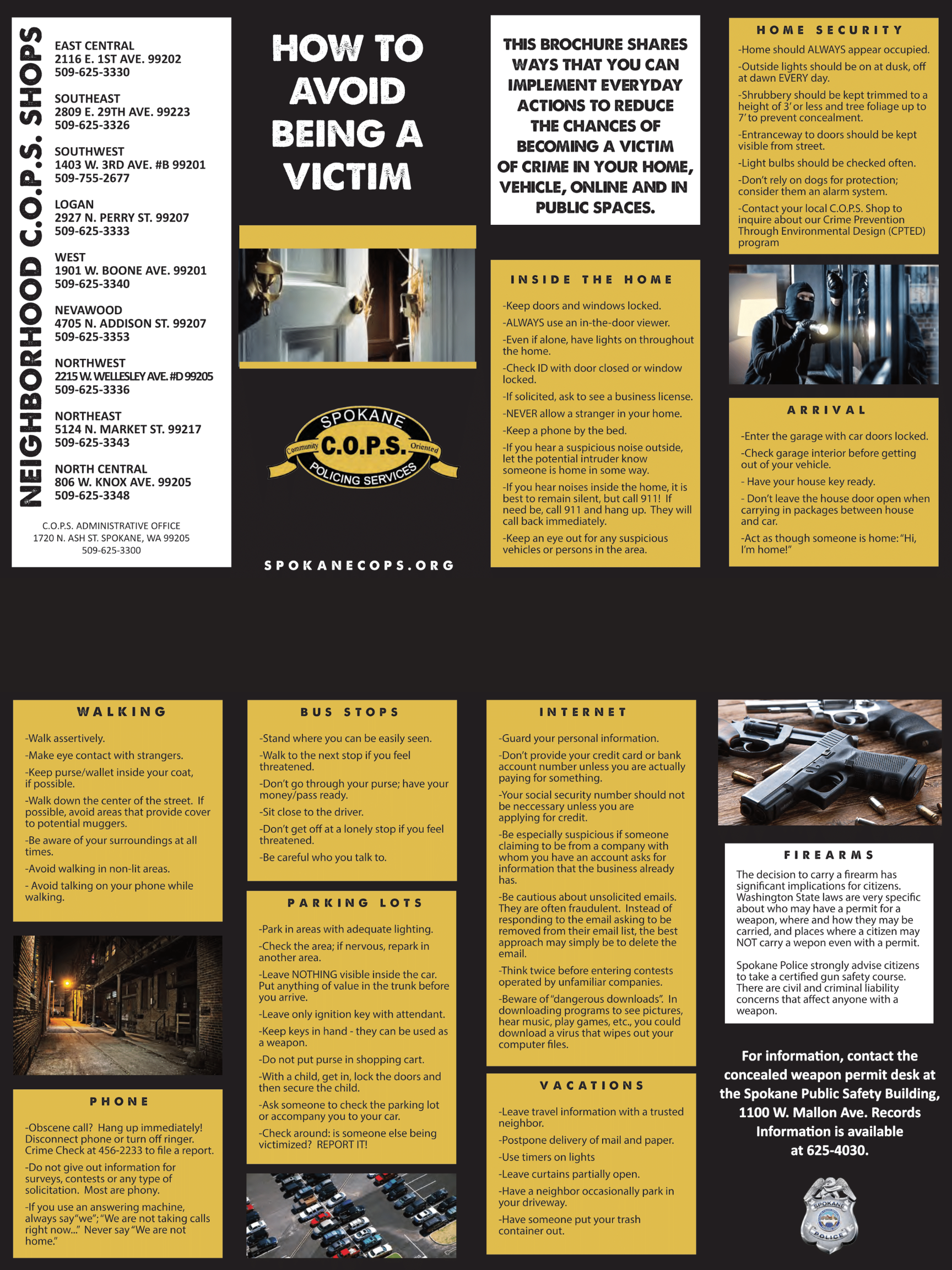Block Watch FAQs
Answers to the most common questions about Block Watch

Are we trained on what to look for and how to report it?
Yes! We not only give you reference books, but we can have COPS staff, police officers, other volunteers come and address you and your neighbors to train you and answer questions.
Is there a cost for this?
Nope! This is a free program for all Spokane residents
So are we becoming vigilantes if we form a Block Watch?
No, Block Watch does not support preventing crime through violence. The intent is to observe and report, learn how to avoid becoming a victim in the first place, look out for each other, and work with police, NOT confront issues by using violence or force.
How big should my Block Watch be?
There is no right or wrong answer, other than the correct size is the size that “works” for your neighborhood. Most Block Watches are made up of 5-10 households – large enough to work together as a group but still small enough to know each other.
Are we expected to have regular meetings?
Not necessarily. We want the neighbors in your Block Watch to be in contact with each other and stay in communication, but formal “meetings” are only needed when relevant. We typically have a meeting when you first form a Block Watch so we can address everyone and get everyone on the same page for dealing with your neighborhood issues that you would like to focus on. After that, we can meet as often as needed to keep dealing with issues.More
Does a person need to be approved to be a member of a Block Watch?
Only the Block Watch Rep. needs to be approved. They go through a background check with the S.P.D.
What kind of commitment would the other Block Watch members have to make?
You would at the least be willing to keep your eyes and ears open
to suspicious activity and to report it to the BW Rep, 911, or your
neighborhood COPS shop as appropriate. You can commit as much or as little as you want, but remember, a Block Watch is only effective when people are involved.
Are there meetings we would have to attend?
You don't have to attend any meetings, though the initial meeting is strongly recommended, since that is where you will meet the neighbors and discuss issues and what is being done and get training. Ideally, a Block Watch should have at least one meeting each year (National Night Out is PERFECT for this), but depending on the issues in the neighborhood, sometimes several meetings are needed.
How do we contact each other?
There are many ways to do this. Some use an old fashioned phone tree. Some Block Watches prefer a group text. Some like a closed social media page. Some prefer email chains. There is no right or wrong way. As long as it works, each group can communicate in whatever method makes most sense for that group.
Is there any danger involved?
Any time you stand up against bad behavior there is an element of danger. However, we will train you watch, document and report suspicious activity in a safe way. If you ever feel uncomfortable or at risk in a situation, then you should step away. Block Watch should be a band of neighbors working together. There is always more safety in numbers. You can always participate to your comfort level. And remember, you are observing and reporting, NOT being confrontational.
Do we invite everybody on the block to be a part of the Block Watch?
No. Each Rep will use judgement about which neighbors to ask. Obviously if you feel that a neighbor is part of the problems, they would not be a good neighbor to ask.
How successful has Block Watch been in the past?
Block Watch groups that are active, that communicate and that work together to report issues are typically very effective in removing problem situations. Neighbors that communicate and stay on top of issues are usually very effective at dealing with issues before they get out of control. In addition, you’ll feel better and safer for yourself and your family when you know your neighbors and have relationships with the people around you.






